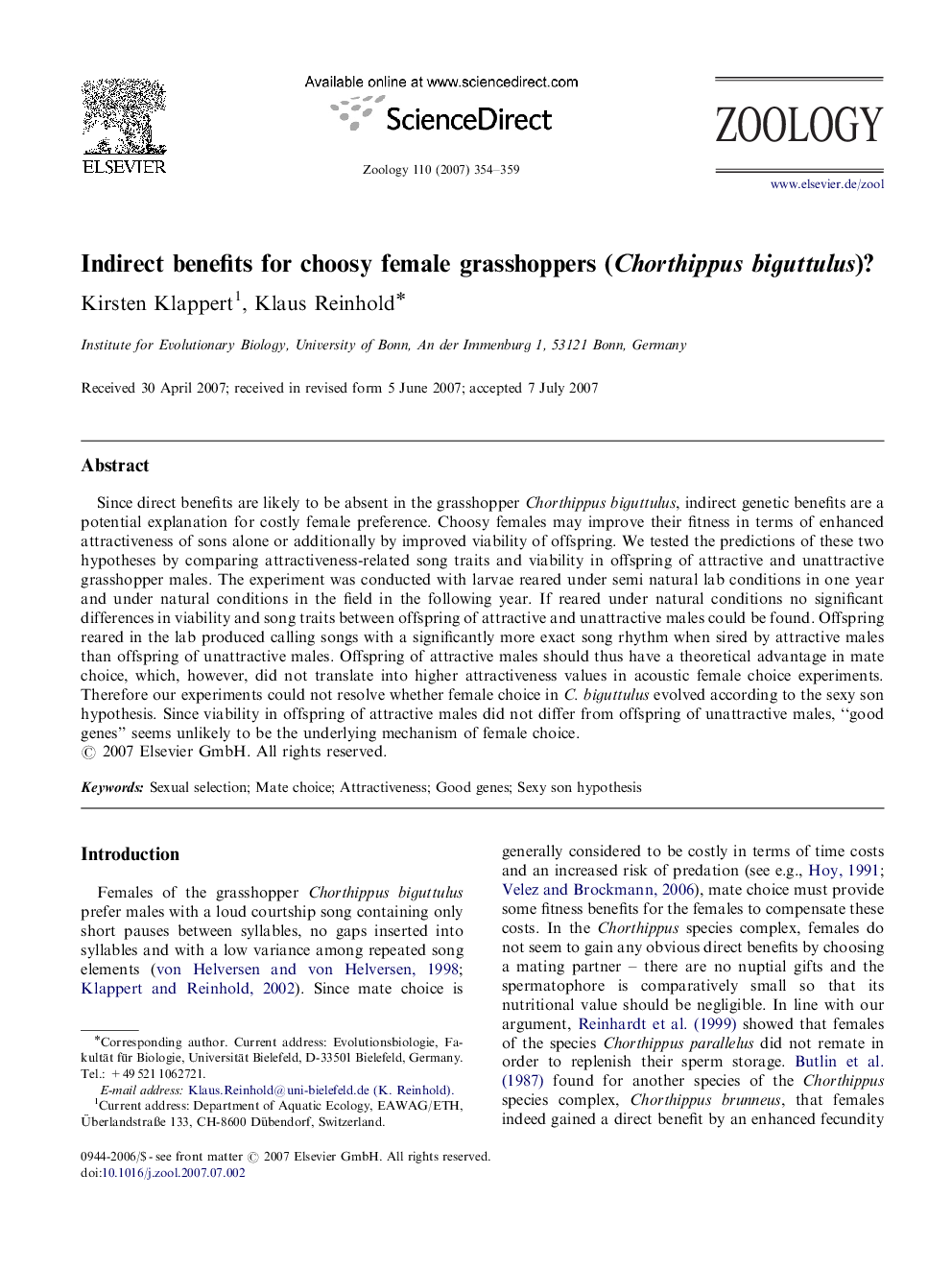| Article ID | Journal | Published Year | Pages | File Type |
|---|---|---|---|---|
| 2791394 | Zoology | 2007 | 6 Pages |
Since direct benefits are likely to be absent in the grasshopper Chorthippus biguttulus, indirect genetic benefits are a potential explanation for costly female preference. Choosy females may improve their fitness in terms of enhanced attractiveness of sons alone or additionally by improved viability of offspring. We tested the predictions of these two hypotheses by comparing attractiveness-related song traits and viability in offspring of attractive and unattractive grasshopper males. The experiment was conducted with larvae reared under semi natural lab conditions in one year and under natural conditions in the field in the following year. If reared under natural conditions no significant differences in viability and song traits between offspring of attractive and unattractive males could be found. Offspring reared in the lab produced calling songs with a significantly more exact song rhythm when sired by attractive males than offspring of unattractive males. Offspring of attractive males should thus have a theoretical advantage in mate choice, which, however, did not translate into higher attractiveness values in acoustic female choice experiments. Therefore our experiments could not resolve whether female choice in C. biguttulus evolved according to the sexy son hypothesis. Since viability in offspring of attractive males did not differ from offspring of unattractive males, “good genes” seems unlikely to be the underlying mechanism of female choice.
